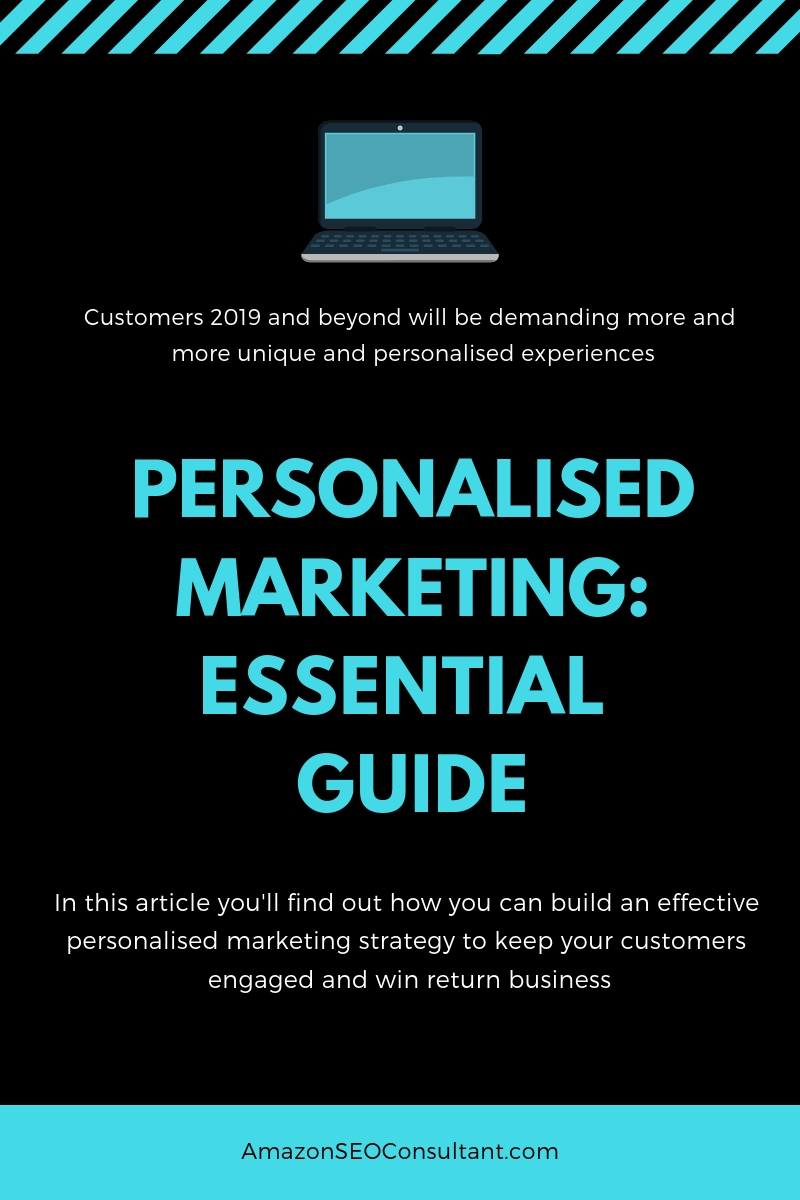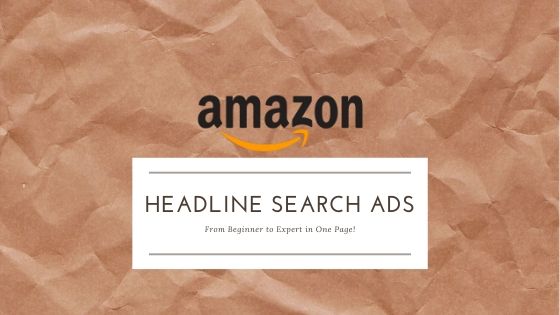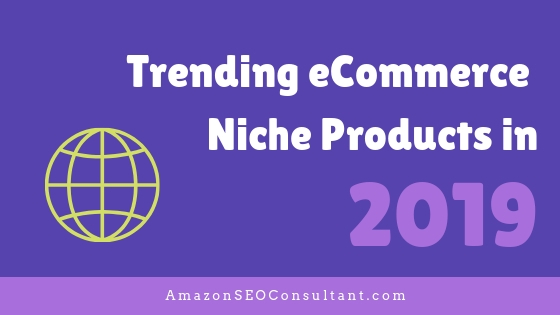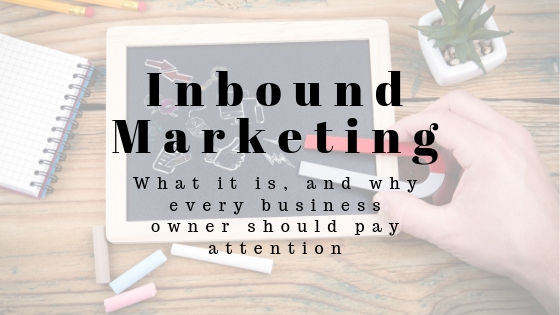We’re all suckers for a unique personal touch.
It can be as simple as a local cafe remembering your usual order, or name.
Connections like this can make somebody feel important or special.
This, in turn, makes them more likely to respond positively.
Marketing works the same way.
Personalising your marketing makes your customers feel more important to you, which is a huge aid in building loyalty.
In the near future, personalisation in advertising will be more important than ever, so we decided to put together a detailed guide on what you should be doing to help you grow your business to the next level, this year and further ahead.
Read on to learn more:
What is Personalisation in Marketing?
Personalised marketing (also known as ‘customised marketing‘, ‘one to one marketing‘, ‘individual marketing‘ and other names) is the name of a marketing strategy that involves making use of data analytics to deliver specific and individualised marketing messages or products to appropriate existing or potential customers.
The overall goal is to deliver highly specific advertisements, landing pages or marketing text that are uniquely targeted to each specific user or group of users, greatly increasing relevance and the likelihood of conversion when compared to a general marketing strategy that does not take different user’s tastes and desires into account.
What are the Benefits of Personalised Marketing?
There is a wide range of benefits to running a personalised marketing strategy, both for your business and your customers.
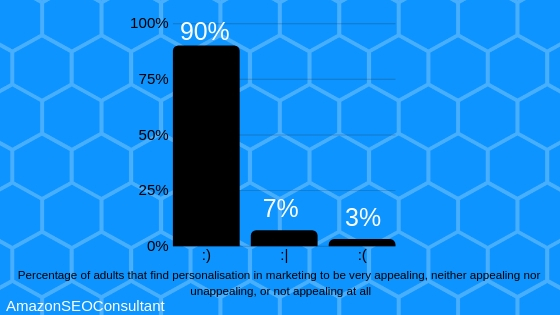
Learn What Works
Personalised marketing allows businesses to learn more about exactly what attracts and turns away their customers based on a wide variety of behavioural and demographic data.
Not only can this be used for customers, allowing you to track their habits and make improvements to your conversions, but it can also be used for your marketing campaigns themselves, tracking what demographic of customers they bring in and what the return on your investment is, making it a lot easier to know what works and what doesn’t.
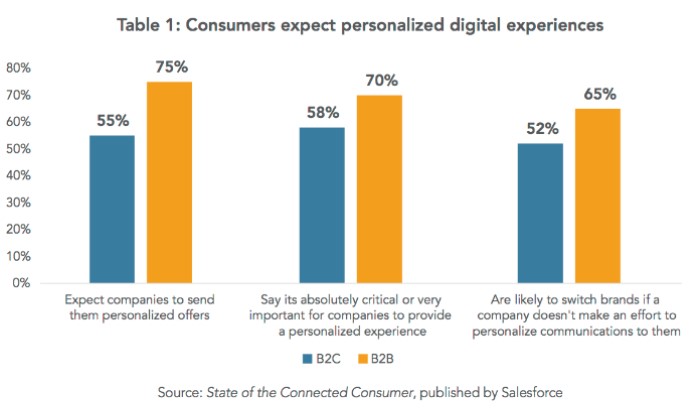
Automation
Plenty of personalised marketing processes can be automated, for example, a pop-up advert appearing on the side of your website offering products you know the customer is interested in, or automatically emailing a customer a specific amount of time after a purchase, offering a related product.
This means more revenue, more orders and bigger order sizes, with minimal if any extra work from your staff.
Increase Brand Loyalty
Customers love being treated like they’re special. If they are buying from you, engaging with your website, and providing you with data, but also feeling like they are receiving a unique experience from you in return, this will build brand loyalty and can gain you lifelong customers who barely even consider other options.
If they aren’t getting that unique experience, why would they continue giving you all this data when they could get what you’re offering in return from elsewhere?
Businesses that put time and effort into successful personalised marketing campaigns tend to have a huge advantage when it comes to customer retention and customer satisfaction.
More Relevant Offerings
On most eCommerce websites, customers find themselves under a deluge of a variety of products or services.
For some people, this alone can be a reason to give up, and few are willing to spend time scrolling through products that are irrelevant to them to find something they might like.
Nothing is worse for conversions than irrelevant information or offerings, so using personalised data to suggest products that have a bigger chance of appealing to each specific customer can make a huge difference to your revenue and conversion rate.

Much Better Customer Experience
As you already know, customer experience is key to success in eCommerce and arguably the most important aspect of the whole thing.
If customers feel valued and know they get a return from completing certain actions with you, they are more likely to continue such actions, meaning an increase in your email marketing list sign-ups, participation in surveys etc.
As long as they get a more personalised experience in return, and you protect their information, there is no reason they shouldn’t be happy to do this again and again.

Push Revenue Growth
The power you have with personalised experiences is unbelievable.
It’s not just about marketing specific products to the users who favour them, you can do this with everything.
For example, if a certain customer is only engaging with you through one specific social media channel, you can continue to target them through that channel only, increasing your chances to make a connection.
Or if certain products perform poorly through a certain channel, you can just focus on another channel every time you market that product in the future.
The result of this is a boost to ROI as you remove all waste and ineffective tactics from your campaigns.
We can actually help you with this, using our unmatched experience and original ranking process to improve your profits while you work on other things.
Take a look at our case studies to see the results we’ve achieved for others.
If you’d rather do it yourself, continue on:
Consistent Message Across All Channels
Nowadays, more than ever internet users are interacting with a variety of businesses across a wide range of different social media networks and marketing channels.
Because of this, it’s more crucial than ever that you put out a consistent message across all of your channels.
This has the added bonus of making your ads stick in users’ minds as they switch between sites and getting a solid, unified message across that directly appeals to them amongst the white noise.
What are the Challenges of Personalised Marketing?
Using Segmentation Intelligently
Segmentation is your biggest ally when it comes to personalised marketing, allowing you to split up your data into segments and target each segment appropriately.
Despite this, a surprising amount of businesses skimp out on their segmentation strategies.
You can just have a couple of broad segments if you want, but that will minimise the effectiveness of the strategy and is pretty much the same as having a couple of email lists on the go at once.
Ideally, you need to read up on segmentation strategies until you know them like the back of your hand, and set up a detailed and comprehensive segmentation strategy that targets all of your users in an effective and personalised manner.
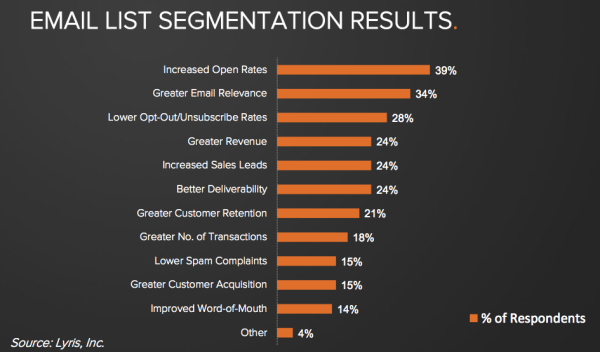
Time and Resources
Personalised marketing is actually a positive for your time and resources, due to the boosts to revenue and automation mentioned above.
However, to set up a successful personalised marketing strategy you do need a dedicated team.
After all, who’s going to draw up all these personas?
Many companies hesitate when it comes to spending the capital to set up a team for this, and it can be a big hurdle when this is the case.
If you do your research and come up with a strategy you’re confident in, it’s time to invest.
Otherwise, if your marketing campaigns begin to grow in scope but your business isn’t ready to handle them, you may find yourself stuck on a plateau.
Take a look at our case studies to see how we have boosted our client’s Amazon product profits by 10X, allowing them to focus their time and resources elsewhere and make huge gains.
Keeping up to Date with Technology
There are a ton of personalised marketing solutions out there, but many are supremely outdated.
There is no industry more quickly changing and evolving than digital marketing, and if you want to be one of the best you need to stay up to date with the changes and know your stuff.
Since data collection and automation are huge parts of ad personalisation, you need a well-designed algorithm to accurately and efficiently make the best use of all this data.
You simply can’t afford to fall behind on this one.
How to Build a Winning Personalised Marketing Strategy
Ok, so by now you should hopefully be fully aware of the benefits and challenges of personalised marketing and how crucial it really is for pushing growth not only in 2019 but for the foreseeable future.
Your website users are getting more internet savvy by the day and have come to expect personalised content due to the offerings of the giants of eCommerce.
When first planning your personalised marketing strategy it can seem like there are infinite options, each of which can be a black hole of investment if you aren’t careful.
Let’s go through some of the best ways to start and how you can approach them effectively to stimulate rapid growth:
Targeted & Personalised Email Campaigns
It’s extremely easy and completely free to make some slight changes to your marketing emails and make them more personalised.
You should, of course, use the customer’s name and similar personalised labels within the text of the email.
Automated messages triggered by specific actions can also be scheduled by time, so, for example, you can send an email offering an ink cartridge to a customer that bought a printer from you a month or two previous.
You know the chances are pretty high that the customer has used most of the ink or is nearing the end of it, drastically increasing the chances they will respond well to that email.
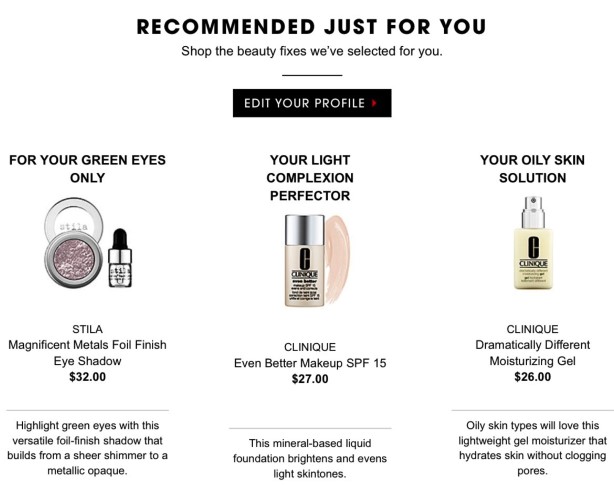
A common one you’ve probably received yourself is companies that send you a happy birthday message every year that includes a voucher for a small discount.
These little touches really do make a customer feel valued and establish a rapport.
You can get as granular and creative with it as you want, and the more surprising and personal the emails seem to the customer, the bigger an impact they will have.
Social Media Marketing & Personalised Posts
Social media is an exciting place for marketers, but it can be extremely tough to cut through all the noise.
It is already full of algorithms and personalised advertisements based on the users’ likes, visited locations, social connections and other incredibly powerful data.
If you are posting generic ads amongst all of that and hoping to get a good response from a wide market, you don’t stand a chance.
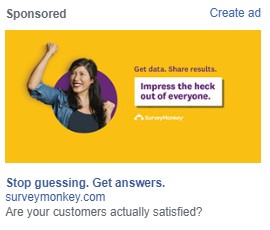
Paid social media ads allow you to target audiences by extreme custom segmentation, making individual ads show up to different groups for maximised conversion.
Targeting specific interests with content make it feel more personal to anyone who views it, pushing the click.
For example, if you’re launching a streetwear brand, why not push the ads to everybody who likes the social media page of the biggest streetwear news website?
All of a sudden you have a ready-built audience of enthusiastic potential customers who you know are willing to engage online with similar products to your offering!
Personalisation in Customer Service
We will never stop singing the praises of effective and friction-free customer service.
Generic replies and “by the book” solutions to problems just make the customer view you as a faceless money-making machine.
A tailored approach and custom messages make a customer feel unique, valued and increases their chances of returning consistently.
According to CRMPlus Consulting, 68% of customers who leave a business and don’t use it again do so because of poor customer service.
Personalised customer service also sets you apart from the competition in a big way.
If two businesses are selling the same item you want to buy at the same price, but one has a friendly and helpful customer service team whereas the other sends generic copy and paste email responses, which one would you want to deal with?
To prove this point, research shows that 55% of customers say they are willing to pay more if they receive a more positive customer service experience.
So hopefully that gives you an idea of how far personalised customer service communications and establishing rapport can go in towards strong customer acquisition and building a long term customer base who are engaged, loyal and feel valued.
Adaptable Product Recommendations
We already covered this one briefly, but as mentioned before internet users are extremely averse to having to scroll through products or offerings that aren’t relevant to them.
The most successful product pages offer the item the customer wants immediately at the top, with the buy button clearly visible and few other distractions on the page.
This is why product recommendations are so powerful.
You can use customers’ purchase and browsing histories to make sure the products you offer first to every single individual customer are ones they are personally likely to have an interest in.
Amazon is at the forefront of this and you will notice when you log in that almost every item visible on their homepage is related to something you personally have an interest in or have purchased before.
Also, while not quite products, video streaming services like Netflix, Hulu and Amazon Prime Video do extremely similar things with video content, serving up relevant content that is likely to interest viewers, therefore extending watch time and creating new viewing habits.

Personalised Promotions & Deals
We’ve spoken about personalising product or content offerings, but what about personalised offers themselves?
Promotions and deals already increase customer engagement and sales, so combining them with marketing personalisation is a powerful option.
Retail loyalty programs such as Tesco Clubcard and the Boots Advantage Card are great things to look at for inspiration regarding this.
Whilst not eCommerce based, they have been successfully pushing customer loyalty and pulling in return customers for decades.
One very powerful technique they often use is posting vouchers for savings on specific items that the customer regularly buys.
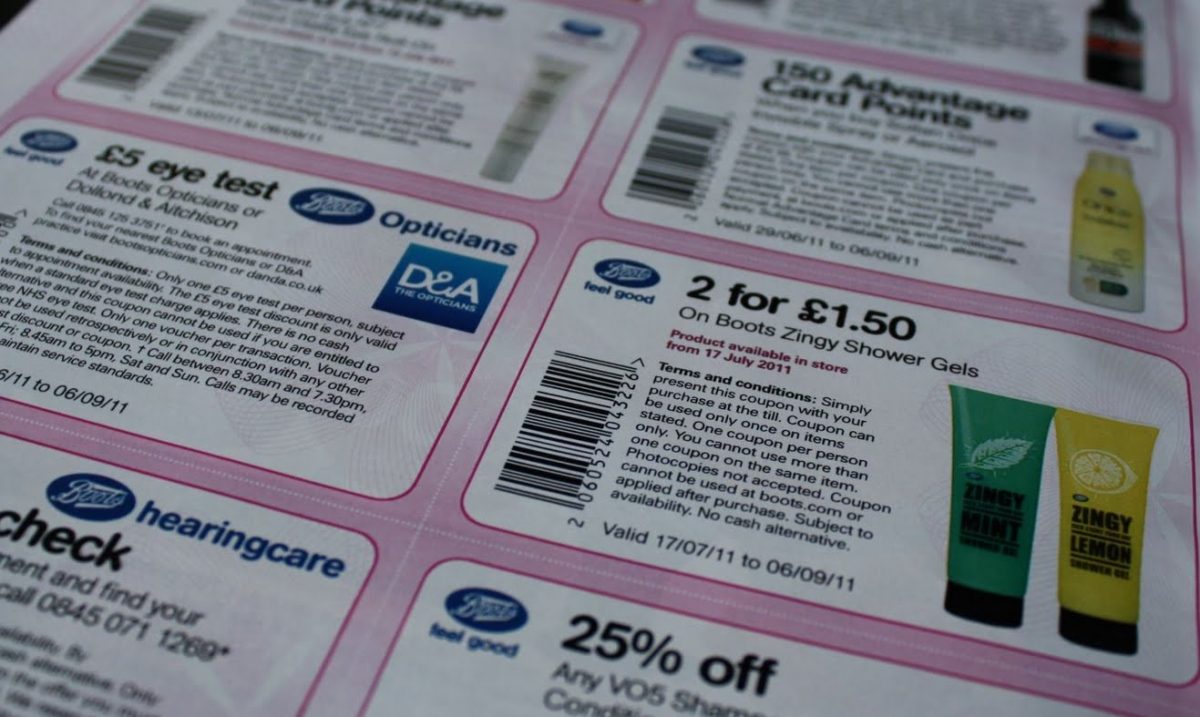
This is much more likely to catch the customers’ attention because it means the shop is aware of what they regularly want and is offering to help with it, establishing a long-term relationship.
Of course, when the customer goes to get this product, they will be greeted by a full store of optimally placed items, and chances are good that they will buy more than just that one product that was discounted.
You can use the same technique online to even greater effect, by sending out personalised discounts to customers.
When they click the image in your email and go to the product page, they will be hit by personalised recommendations for products they are already interested in.
This is just one example of how two personalisation marketing techniques can work together to drive sales, order sizes and revenue, so you can imagine the benefits when all of the techniques covered here are working together successfully!
Personalised Snail Mail
Personalised marketing doesn’t have to only take place online.
Direct mail marketing is also a commonly used technique, but with the public getting more and more used to junk mail and ignoring it, personalised messages on envelopes and references to previous actions by the customer can catch the eye and make it much more likely a letter will be opened and read with an open mind.
Examples of Successful Personalised Marketing Campaigns
Coca Cola
When Coca-Cola was faced with declining sales, they came up with an amazing personalised marketing campaign you’re probably aware of already.
The “Share a Coke” campaign involved releasing personalised coke bottles and cans with hundreds of first names displayed on them.
These were all names that were highly common among millennials as Coca-Cola felt they weren’t as popular with that age group as they should be.
The concept relies on the idea that customers will spontaneously purchase a drink they weren’t planning on buying when they see their own name on the side of it in a store.
The campaign worked and sales volume of Coca-Cola grew in the United States for the first time in four years.
The campaign also made the news globally and people began sharing pictures of Coca-Cola drinks with their names on in huge numbers on social media.
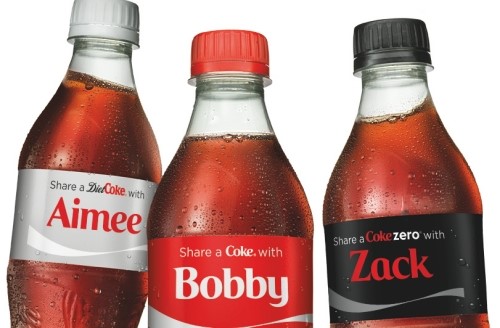
Spotify
Another great example of a successful personalised marketing campaign is Spotify’s recommendation algorithm.
As of the fourth quarter of 2018, Spotify had 96 million subscribers.
Each one of those subscribers has a different music taste, and each week, every single one of them wakes up to a new personalised playlist.
The recommendation algorithm takes note of all the songs you listen to and enjoy regularly, then finds songs you haven’t heard that are commonly listened to alongside or placed in playlists with the ones you already enjoy.
It does this with an extremely fine toothcomb, comparing songs by narrow micro-genres such as “backpack rap” and “Southern soul” as opposed to just “hip hop” and “rock”.
The result of this is song recommendations that are spookily accurate, and automatically recommended playlists that sound just like the curated mixtape you might make for yourself if you had the time.
Of course, the end result of this is extended listening times, more engagement, and a greater relationship between Spotify and its subscribers.

Upcoming Personalised Marketing Trends to Watch
The future of personalised marketing is likely to continue to focus on the aspects detailed above, but the development of artificial intelligence and machine learning will make it possible to collect more data and target personalised marketing campaigns more accurately than ever.
The key things you should do to keep on top of personalised marketing into the future are:
- Adapt to growth in technology:- Being aware of all social media platforms and how they differ, using the most modern techniques of data-gathering, and staying ahead of the curve will give you an edge over the competitors and make sure you don’t fall behind on new effective ideas and concepts.
- Keep the law in mind:- There is a lot of controversy around companies collecting data on people (more on that in a minute). To address this, governments will be kicking into high gear and enforcing all sorts of new legislation. You need to be aware of how laws vary in different countries when it comes to data privacy, to avoid getting yourself into any sticky situations.
- Let your business model evolve:- running, analysing and optimising all of these personalised marketing campaigns will take money and resources. To make sure you are in it for the long game and not just making a temporary push into the market, you need to ensure your business is correctly and appropriately set up, and this may mean some considerable changes.
Why is Personalised Marketing Controversial?
Thanks to some high profile cases like the one involving Facebook and Cambridge Analytica, the eyes of the public are on how data is acquired more than ever before.
There are also some debates on how personalised content and marketing can block out other, more general content that in fact would be important and useful.
This is a topic that will develop further, and it’s always a good idea to keep on top of current events.
The best thing we can advise you to do right now is to be extremely open and clear about how you collect customer data and for what purposes.
Any pervasive idea that you are acting unscrupulously or tricking people out of their data will result in a painful and rapid loss of all the customer loyalty and goodwill you have built up.
Data security also needs to be top of your list.
A lawsuit because a staff member accidentally leaked your customers’ credit card details or they weren’t secure enough in the first place could be the end of your business, and it wouldn’t be the first time.
Frequently Asked Personalised Marketing Questions
What is One-to-One Marketing?
One-to-one marketing is another word used to refer to personalisation in marketing and everything you’ve read about personalised marketing in this article can also be applied to one-to-one marketing.
What are Some Other Personalised Marketing Campaigns?
There are some personalised marketing campaigns outside of the well-known ones like Coca-Cola, and even outside of eCommerce that can help explain to you how all-encompassing personalised media marketing is about to become, and maybe even give some inspiration as to how personalisation can be used.
Let’s take a look at a couple:
Alien: Covenant Advert
An interesting look into how personalisation might slowly begin to be used in broadcast media.
In 2018, Channel 4 in the UK broadcast a trailer for the upcoming movie Alien: Covenant, which ended with the viewer being told to “run” by name.
Channel 4 has done things like this with the visual personalised text before, but audio personalisation on television is brand new.

Microsoft
In 2015, Microsoft marketed it’s new Cortana digital assistant by launching customisable out-of-home advertisements on billboards, bus stops and similar.
While these ads weren’t personalised for specific people at first, they changed based on time of day, weather, current events and more.
When a Glasgow local took offence at one of the adverts and tweeted a picture of it with the caption “…said nobody in Glasgow ever”, Microsoft reacted not via Twitter, but by changing the advert in question to respond directly to the Tweeter.
This not only demonstrated the power of their new marketing capabilities but made waves across social media.
Are There Prepackaged Solutions for Personalised Customer Service?
If you are a smaller business who wants to get in on this before you miss the boat, there are some software solutions out there that can help provide pretty damn good personalised customer service systems out of the box, saving you time and money.
While larger corporations are usually better going their own way, these packages can be a lifesaver for the underdog who doesn’t have that option.
Dynamic Yield is a strong personalisation package based on artificial intelligence that allows you to individualise every stage of the conversion funnel, from email marketing to web content to apps and even call centres.
I think that’s all for today, but if you do business through Amazon don’t forget to check out our process page to read about our uniquely effective method which has helped hundreds of clients rocket their products to the top of Amazon rankings in high competition keywords!
If you’d like our help growing your Amazon business, fill in our proposal form to see how we could help you!
